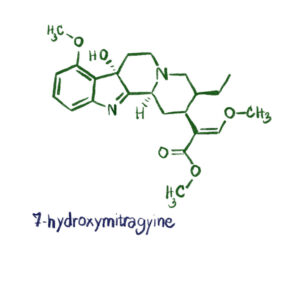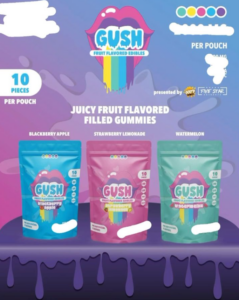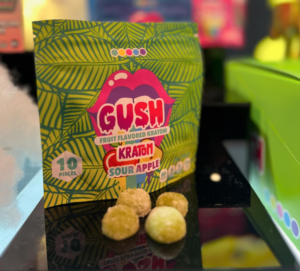The legal landscape of Delta 9 THC in the United States is complex and multifaceted, shaped by federal and state regulations, along with public and congressional responses. That’s why we’ll be providing an in-depth look at the legal status of Delta 9 THC, and understanding these legal distinctions is crucial for consumers and businesses alike, particularly as they navigate the evolving cannabis industry.
Federal Status of Delta 9 THC
Delta 9 THC is the primary psychoactive component of cannabis. It’s classified as a Schedule I controlled substance under the Controlled Substances Act (CSA) of 1970. This classification indicates that Delta 9 THC is considered to have a high potential for abuse, no accepted medical use, and a lack of accepted safety for use under medical supervision.
However, the 2018 Farm Bill (Agriculture Improvement Act of 2018) introduced a significant change in the legal status of hemp, a type of cannabis plant that contains less than 0.3% Delta 9 THC by dry weight. The Farm Bill legalized the cultivation, processing, and sale of hemp and hemp-derived products, including cannabidiol (CBD) and other cannabinoids, as long as they do not exceed the 0.3% Delta 9 THC threshold. This has created a distinction between hemp-derived Delta 9 THC, which’s legal under federal law, and marijuana-derived Delta 9 THC, which remains illegal.
The U.S. Food and Drug Administration (FDA) has also played a role in regulating Delta 9 THC, particularly in relation to its use in food, dietary supplements, and other consumer products. The FDA has expressed concerns about the safety of THC and CBD in these products and continues to evaluate their regulatory framework.
Public and Congressional Response
The legal status of Delta 9 THC has been a topic of significant public debate and congressional action. Over the past decade, there has been a growing movement to reform cannabis laws at both the state and federal levels. Public opinion has shifted considerably, with a majority of Americans now supporting the legalization of cannabis for both medical and recreational use. In response to changing public attitudes, several bills have been introduced in Congress to decriminalize or legalize cannabis at the federal level.
Despite these efforts though, there has been limited progress at the federal level, leading to a patchwork of state laws that vary widely in their treatment of Delta 9 THC. Some states have fully legalized cannabis, while others maintain strict prohibitions. This disparity has created confusion and legal challenges for consumers, businesses, and law enforcement.
Delta 9 THC Legal Status by State
The legal status of Delta 9 THC varies significantly from state to state. So, we will explore the specific laws and regulations governing Delta 9 THC in each state, providing a comprehensive overview of where it is legal, restricted, or prohibited.
Alabama
In Alabama, Delta 9 THC is illegal for recreational use. However, the state has a limited medical cannabis program that allows patients with qualifying conditions to access low-THC cannabis products. These products must contain less than 3% Delta 9 THC by weight. The use of marijuana-derived Delta 9 THC remains illegal.
Alaska
Alaska has fully legalized cannabis for both medical and recreational use. Adults 21 and older can legally purchase and possess Delta 9 THC products, including marijuana flower, edibles, and concentrates. Alaska’s legal framework also allows for the cultivation of a limited number of cannabis plants for personal use.
Arizona
In Arizona, Delta 9 THC is legal for both medical and recreational use. The state legalized recreational cannabis in 2020, allowing adults 21 and older to possess up to one ounce of marijuana and grow up to six plants for personal use. Arizona also has a robust medical cannabis program that has been in place since 2010.
Arkansas
Arkansas has a medical cannabis program that allows patients with qualifying conditions to access Delta 9 THC products. Recreational use of Delta 9 THC remains illegal in the state. The medical program permits the use of marijuana-derived Delta 9 THC for specific medical conditions, but there are strict regulations on the possession and use of these products.
California
California was one of the first states to legalize medical cannabis in 1996 and recreational cannabis in 2016. Delta 9 THC is legal for both medical and recreational use, and the state has a well-established cannabis industry. Adults 21 and older can possess up to one ounce of marijuana and grow up to six plants for personal use. California also has a comprehensive regulatory framework for the cultivation, processing, and sale of Delta 9 THC products.
Colorado
Colorado legalized recreational cannabis in 2012, making it one of the first states to do so. Delta 9 THC is legal for both medical and recreational use, and the state has a thriving cannabis market. Adults 21 and older can possess up to one ounce of marijuana and grow up to six plants for personal use. Colorado also allows for the commercial sale of Delta 9 THC products, with strict regulations governing their production and distribution.
Connecticut
Connecticut has legalized Delta 9 THC for both medical and recreational use. The state’s medical cannabis program has been in place since 2012, and recreational cannabis was legalized in 2021. Adults 21 and older can possess up to one and a half ounces of marijuana and grow up to six plants for personal use. The state is currently developing a regulatory framework for the commercial sale of Delta 9 THC products.
Delaware
Delaware has a medical cannabis program that allows patients with qualifying conditions to access Delta 9 THC products. Recreational use of Delta 9 THC remains illegal in the state. The medical program permits the use of marijuana-derived Delta 9 THC for specific medical conditions, with strict regulations on the possession and use of these products.
Florida
Florida has a medical cannabis program that allows patients with qualifying conditions to access Delta 9 THC products. Recreational use of Delta 9 THC remains illegal in the state. The medical program permits the use of marijuana-derived Delta 9 THC for specific medical conditions, with strict regulations on the possession and use of these products.
Georgia
In Georgia, Delta 9 THC is illegal for recreational use. However, the state has a limited medical cannabis program that allows patients with qualifying conditions to access low-THC cannabis products. These products must contain less than 5% Delta 9 THC by weight. The use of marijuana-derived Delta 9 THC remains illegal.
Hawaii
Hawaii has a medical cannabis program that allows patients with qualifying conditions to access Delta 9 THC products. Recreational use of Delta 9 THC remains illegal in the state. The medical program permits the use of marijuana-derived Delta 9 THC for specific medical conditions, with strict regulations on the possession and use of these products.
Idaho
In Idaho, Delta 9 THC is illegal for both medical and recreational use. The state has some of the strictest cannabis laws in the country, with no allowances for medical cannabis or low-THC products. Possession of any amount of Delta 9 THC can result in severe legal penalties.
Illinois
Illinois legalized recreational cannabis in 2020, allowing adults 21 and older to possess up to one ounce of marijuana and grow up to five plants for personal use. Delta 9 THC is legal for both medical and recreational use in the state, and Illinois has a well-regulated cannabis market.
Indiana
In Indiana, Delta 9 THC is illegal for both medical and recreational use. The state does not have a medical cannabis program, and possession of any amount of Delta 9 THC can result in legal penalties. Indiana has strict laws against the use and distribution of cannabis products.
Iowa
Iowa has a limited medical cannabis program that allows patients with qualifying conditions to access low-THC cannabis products. These products must contain less than 3% Delta 9 THC by weight. Recreational use of Delta 9 THC remains illegal in the state, and marijuana-derived Delta 9 THC is prohibited.
Kansas
In Kansas, Delta 9 THC is illegal for both medical and recreational use. The state has some of the strictest cannabis laws in the country, with no allowances for medical cannabis or low-THC products. Possession of any amount of Delta 9 THC can result in severe legal penalties.
Kentucky
Kentucky has a limited medical cannabis program that allows patients with qualifying conditions to access low-THC cannabis products. These products must contain less than 0.3% Delta 9 THC by weight. Recreational use of Delta 9 THC remains illegal in the state, and marijuana-derived Delta 9 THC is prohibited.
Louisiana
Louisiana has a medical cannabis program that allows patients with qualifying conditions to access Delta 9 THC products. Recreational use of Delta 9 THC remains illegal in the state. The medical program permits the use of marijuana-derived Delta 9 THC for specific medical conditions, with strict regulations on the possession and use of these products.
Maine
Maine legalized recreational cannabis in 2016, allowing adults 21 and older to possess up to two and a half ounces of marijuana and grow up to three plants for personal use. Delta 9 THC is legal for both medical and recreational use in the state, and Maine has a well-regulated cannabis market.
Maryland
Maryland has a medical cannabis program that allows patients with qualifying conditions to access Delta 9 THC products. Recreational use of Delta 9 THC remains illegal in the state. The medical program permits the use of marijuana-derived Delta 9 THC for specific medical conditions, with strict regulations on the possession and use of these products.
Massachusetts
Massachusetts legalized recreational cannabis in 2016, allowing adults 21 and older to possess up to one ounce of marijuana and grow up to six plants for personal use. Delta 9 THC is legal for both medical and recreational use in the state, and Massachusetts has a well-regulated cannabis market.
Michigan
Michigan legalized recreational cannabis in 2018, allowing adults 21 and older to possess up to 2.5 ounces of marijuana and grow up to 12 plants for personal use. Delta 9 THC is legal for both medical and recreational use in the state, and Michigan has a thriving cannabis industry.
Minnesota
Minnesota has a medical cannabis program that allows patients with qualifying conditions to access Delta 9 THC products. Recreational use of Delta 9 THC remains illegal in the state. The medical program permits the use of marijuana-derived Delta 9 THC for specific medical conditions, with strict regulations on the possession and use of these products.
Mississippi
Mississippi has a limited medical cannabis program that allows patients with qualifying conditions to access low-THC cannabis products. These products must contain less than 0.5% Delta 9 THC by weight. Recreational use of Delta 9 THC remains illegal in the state, and marijuana-derived Delta 9 THC is prohibited.
Missouri
Missouri legalized medical cannabis in 2018, allowing patients with qualifying conditions to access Delta 9 THC products. The state also legalized recreational cannabis in 2022, allowing adults 21 and older to possess up to three ounces of marijuana and grow up to six plants for personal use. Missouri has a regulated market for the sale of Delta 9 THC products.
Montana
Montana legalized recreational cannabis in 2020, allowing adults 21 and older to possess up to one ounce of marijuana and grow up to four plants for personal use. Delta 9 THC is legal for both medical and recreational use in the state, and Montana has a well-regulated cannabis market.
Nebraska
In Nebraska, Delta 9 THC is illegal for both medical and recreational use. The state does not have a medical cannabis program, and possession of any amount of Delta 9 THC can result in legal penalties. Nebraska has strict laws against the use and distribution of cannabis products.
Nevada
Nevada legalized recreational cannabis in 2017, allowing adults 21 and older to possess up to one ounce of marijuana and grow up to six plants for personal use. Delta 9 THC is legal for both medical and recreational use in the state, and Nevada has a well-regulated cannabis market.
New Hampshire
New Hampshire has a medical cannabis program that allows patients with qualifying conditions to access Delta 9 THC products. Recreational use of Delta 9 THC remains illegal in the state. The medical program permits the use of marijuana-derived Delta 9 THC for specific medical conditions, with strict regulations on the possession and use of these products.
New Jersey
New Jersey legalized recreational cannabis in 2021, allowing adults 21 and older to possess up to six ounces of marijuana. The state also has a medical cannabis program that has been in place since 2010. Delta 9 THC is legal for both medical and recreational use in the state, and NJ has a well-regulated cannabis market.
New Mexico
New Mexico legalized recreational cannabis in 2021, allowing adults 21 and older to possess up to two ounces of marijuana and grow up to six plants for personal use. The state also has a medical cannabis program that has been in place since 2007. Delta 9 THC is legal for both medical and recreational use in New Mexico, and the state has a regulated market for the sale of Delta 9 THC products.
New York
New York legalized recreational cannabis in 2021, allowing adults 21 and older to possess up to three ounces of marijuana and grow up to six plants for personal use. The state also has a medical cannabis program that has been in place since 2014. Delta 9 THC is legal for both medical and recreational use in NY, and the state is currently developing a regulatory framework for the commercial sale of Delta 9 THC products.
North Carolina
In North Carolina, Delta 9 THC is illegal for both medical and recreational use. The state does not have a medical cannabis program, and possession of any amount of Delta 9 THC can result in legal penalties. North Carolina has strict laws against the use and distribution of cannabis products.
North Dakota
North Dakota has a medical cannabis program that allows patients with qualifying conditions to access Delta 9 THC products. Recreational use of Delta 9 THC remains illegal in the state. The medical program permits the use of marijuana-derived Delta 9 THC for specific medical conditions, with strict regulations on the possession and use of these products.
Ohio
Ohio has a medical cannabis program that allows patients with qualifying conditions to access Delta 9 THC products. Recreational use of Delta 9 THC remains illegal in the state. The medical program permits the use of marijuana-derived Delta 9 THC for specific medical conditions, with strict regulations on the possession and use of these products.
Oklahoma
Oklahoma has a medical cannabis program that allows patients with qualifying conditions to access Delta 9 THC products. Recreational use of Delta 9 THC remains illegal in the state. The medical program permits the use of marijuana-derived Delta 9 THC for specific medical conditions, with strict regulations on the possession and use of these products.
Oregon
Oregon legalized recreational cannabis in 2014, allowing adults 21 and older to possess up to one ounce of marijuana and grow up to four plants for personal use. Delta 9 THC is legal for both medical and recreational use in the state, and Oregon has a well-regulated cannabis market.
Pennsylvania
Pennsylvania has a medical cannabis program that allows patients with qualifying conditions to access Delta 9 THC products. Recreational use of Delta 9 THC remains illegal in the state. The medical program permits the use of marijuana-derived Delta 9 THC for specific medical conditions, with strict regulations on the possession and use of these products.
Rhode Island
Rhode Island has a medical cannabis program that allows patients with qualifying conditions to access Delta 9 THC products. Recreational use of Delta 9 THC remains illegal in the state. The medical program permits the use of marijuana-derived Delta 9 THC for specific medical conditions, with strict regulations on the possession and use of these products.
South Carolina
In South Carolina, Delta 9 THC is illegal for both medical and recreational use. The state does not have a medical cannabis program, and possession of any amount of Delta 9 THC can result in legal penalties. South Carolina has strict laws against the use and distribution of cannabis products.
South Dakota
South Dakota legalized medical cannabis in 2021, allowing patients with qualifying conditions to access Delta 9 THC products. Recreational use of Delta 9 THC remains illegal in the state. The medical program permits the use of marijuana-derived Delta 9 THC for specific medical conditions, with strict regulations on the possession and use of these products.
Tennessee
In Tennessee, Delta 9 THC is illegal for both medical and recreational use. The state does not have a medical cannabis program, and possession of any amount of Delta 9 THC can result in legal penalties. Tennessee has strict laws against the use and distribution of cannabis products.
Texas
In Texas, Delta 9 THC is illegal for recreational use. However, the state has a limited medical cannabis program that allows patients with qualifying conditions to access low-THC cannabis products. These products must contain less than 1% Delta 9 THC by weight. The use of marijuana-derived Delta 9 THC remains illegal.
Utah
Utah has a medical cannabis program that allows patients with qualifying conditions to access Delta 9 THC products. Recreational use of Delta 9 THC remains illegal in the state. The medical program permits the use of marijuana-derived Delta 9 THC for specific medical conditions, with strict regulations on the possession and use of these products.
Vermont
Vermont legalized recreational cannabis in 2018, allowing adults 21 and older to possess up to one ounce of marijuana and grow up to six plants for personal use. Delta 9 THC is legal for both medical and recreational use in the state, and Vermont has a regulated market for the sale of Delta 9 THC products.
Virginia
Virginia legalized recreational cannabis in 2021, allowing adults 21 and older to possess up to one ounce of marijuana and grow up to four plants for personal use. The state also has a medical cannabis program that has been in place since 2017. Delta 9 THC is legal for both medical and recreational use in Virginia, and the state is currently developing a regulatory framework for the commercial sale of Delta 9 THC products.
Washington
Washington legalized recreational cannabis in 2012, making it one of the first states to do so. Delta 9 THC is legal for both medical and recreational use in the state, and Washington has a thriving cannabis market. Adults 21 and older can possess up to one ounce of marijuana and grow up to six plants for personal use.
West Virginia
West Virginia has a medical cannabis program that allows patients with qualifying conditions to access Delta 9 THC products. Recreational use of Delta 9 THC remains illegal in the state. The medical program permits the use of marijuana-derived Delta 9 THC for specific medical conditions, with strict regulations on the possession and use of these products.
Wisconsin
In Wisconsin, Delta 9 THC is illegal for both medical and recreational use. The state does not have a medical cannabis program, and possession of any amount of Delta 9 THC can result in legal penalties. Wisconsin has strict laws against the use and distribution of cannabis products.
Wyoming
In Wyoming, Delta 9 THC is illegal for both medical and recreational use. The state does not have a medical cannabis program, and possession of any amount of Delta 9 THC can result in legal penalties. Wyoming has strict laws against the use and distribution of cannabis products.
Delta 9 THC’s Legal Status in the USA Can Be a Bit Complex as Things Continue to Evolve
The legal status of Delta 9 THC in the United States is a patchwork of federal and state regulations, creating a complex landscape for consumers, businesses, and policymakers. While some states have embraced the legalization of Delta 9 THC for both medical and recreational use, others maintain strict prohibitions. Understanding the specific laws in each state is crucial for those navigating the legal cannabis industry. As public opinion continues to evolve and legislative efforts progress, the legal landscape of Delta 9 THC will likely continue to change, making it essential to stay informed about the latest developments.





